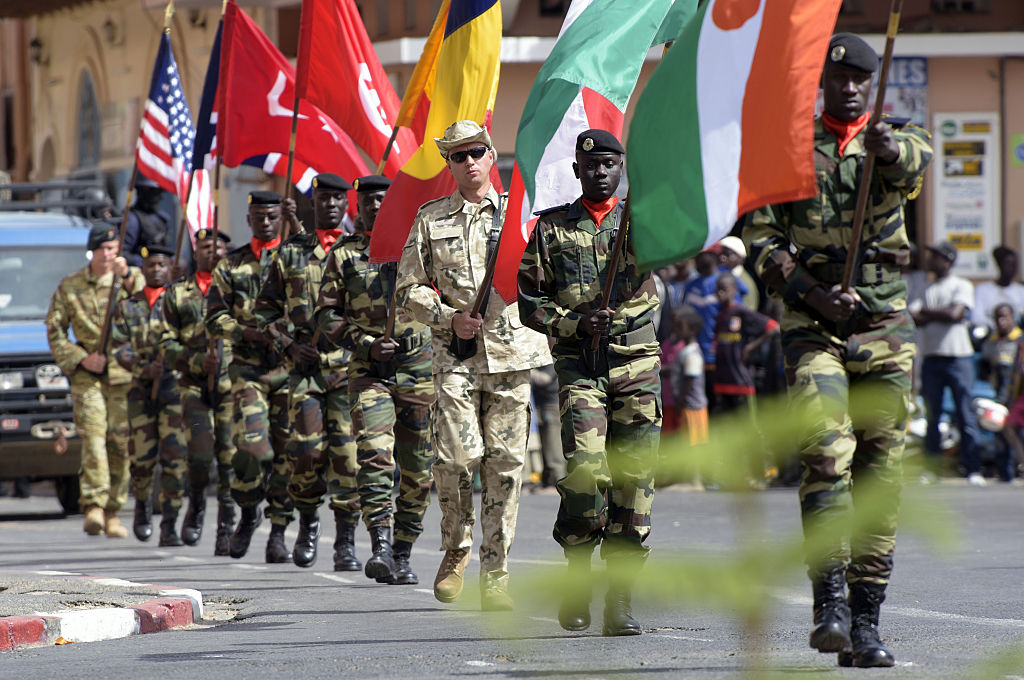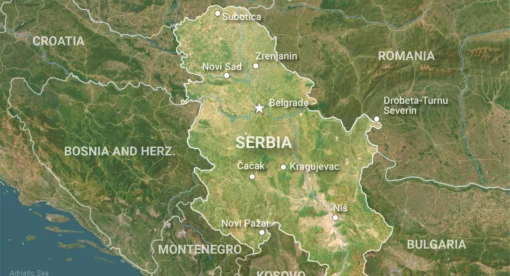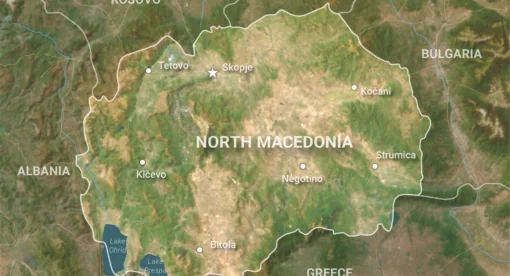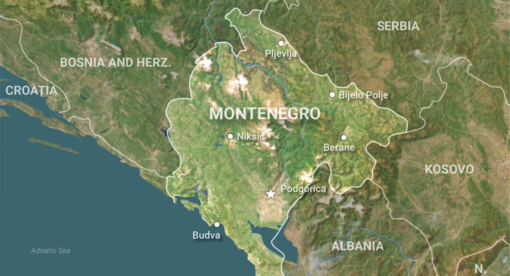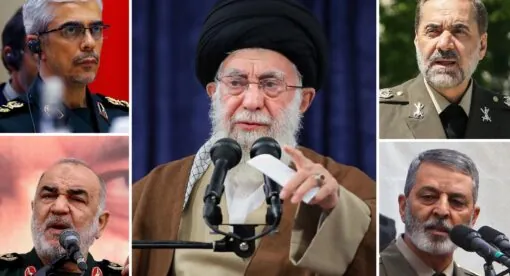The Burkina Faso-Mali-Niger tri-state region remains the terrorist hot zone of the Sahel, and the violence is spilling into Coastal West Africa. AFRICOM Commander Gen. Michael E. Langley made clear in a deposition to Congress this March, that “West Africa is at a turning point.” Terrorism, regional security, and the United States’ competition with Russia (and China) are all in play. Integrating U.S. security and development policy is a necessary step toward addressing the extremist threat, security issues, and great-power competition. U.S. counterterrorism assistance should include efforts that leverage local governance and intra-state relations. Clarifying U.S. commitments in the region is crucial to building stronger relationships with African partners that will allow for these efforts to be regionally led.
This may be the most active year yet for al Qaeda affiliate Jama’at Nasr al-Islam wal Muslimin (JNIM) and the Islamic State in the Greater Sahara (ISGS) in West Africa. The Armed Conflict Location & Event Data Project (ACLED) reported that in 2022, violence in Burkina Faso and Mali “reached the highest levels ever recorded by ACLED.” The United States has met this threat with cautious levels of military training and assistance and a 10-Year Strategic Plan to Prevent Conflict and Promote Stability in Coastal West Africa as part of the Global Fragility Act. The United Nations has emphasized the need for comprehensive and complementary counterterrorism approaches. While the 10-year Plan and the U.N.’s stance promote sustainable counterterrorism approaches, opportunities for implementation are being directly threatened by another foreign party: the PMC Wagner Group. These Russian paramilitary forces are already in Mali and positioning to be in Burkina Faso, intent on delivering heavy-handed blows to terrorist groups – strikes that have also hit and terrorized civilians. Wagner’s presence is exacerbating the terrorist threat while masquerading as a solution to perceived security gaps.
Problems With Hard-Power Support
In addition to the Wagner Group’s presence, African hard-power military assistance could be employed to address the terrorist threat. For example, Rwanda recently promised military support to Coastal West African state Benin, but Rwanda is ranked as “not free” in the Freedom in the World 2022 index and is responsible for its own human rights infractions against civilians in Central Africa.
Without a clear alternative, West African countries facing terrorist violence will prioritize a hard military counterterrorism strategy. The military partnerships that hinge on attacking JNIM and ISGS will only create a stronger threat in West Africa and could strengthen global terrorism networks. West Africa needs help to mitigate this threat responsibly. The U.S. can help prioritize and implement sustainable counterterrorism by integrating its military assistance and training strategies with its prevention and conflict stabilization efforts.
Coastal countries are requesting U.S. security assistance, according to author conversations with officials at the State Department. Considering the steadily increasing terrorist threat and U.S. interest in stemming African countries’ preference of partnering with Russia, the U.S. may answer these calls.
Currently, based on the author’s research and observation of these groups, al Qaeda and ISIS affiliates across Africa do not target the United States, but direct engagement with these groups could make the U.S. a target, especially considering the global networks’ targeting history. However, Washington can work closely with and through its partners in Africa to mitigate the threat of terrorist groups in West Africa changing their targeting to outside the region. By clearly articulating its commitments in the region, the U.S. can build the stronger relationships needed to operate with and through its African partners.
To mitigate al Qaeda and ISIS’s rise in West Africa, military assistance from the U.S. must be implemented in a way that works alongside efforts to develop and prevent violent extremism in the region. The 10-year U.S. Strategy to Prevent Conflict and Promote Stability in Coastal West Africa will require continued focus, implementation, and integration with other U.S. and partner efforts.
Kinetic and Non-Kinetic Measures
Efforts should include extending a responsible state presence in the northern regions of Côte d’Ivoire, Ghana, Benin, and Togo. Such a presence would at least avoid indiscriminate attacks against civilians in the name of security and in full would provide basic services, respect local norms, and abide by international laws regarding human rights. State representation should arrive prior to an insurgency.
AFRICOM’s joint military training, Flintlock, in Ghana and Côte d’Ivoire this March trained West African militaries in counterinsurgency. Military training and engagement must extend past insurgency to fully address adversarial operational strategies. Al Qaeda-affiliate JNIM is not conducting a typical insurgency. While JNIM is a lethal group, elements of their territorial expansion are intentionally non-lethal and low-lethal against civilians. Halting the further spread of JNIM into coastal West Africa would necessitate a non-kinetic (not military-focused) strategy, while countering the existing kinetic threat would require a responsible kinetic strategy.
Mending Relationships
This comprehensive Sahel strategy must coalesce regionally and must be led by African states. State government and security must be integrated with local infrastructure, especially across the northern regions, to best implement this combination top-down and bottom-up approach. A recent United Nations Development Program report pointed out that people often engage with these terrorist groups for jobs or are triggered by a negative interaction with state security forces.
To prevent driving recruitment to both terrorist groups and volunteer forces, fraught intra-state relationships must be mended. Together, the security and developmental efforts can mitigate the spread of terrorism, but separately these efforts have the potential to work against each other.
Leverage U.S. Counterterrorism Successes
This messaging must be nuanced. Less-democratic states and those plagued with higher levels of terrorist activity may have a harder time adopting a comprehensive strategy. The U.S. could leverage Operation Inherent Resolve’s success in targeting ISIS, especially in Iraq and Syria, in a political pitch to state leaders as proof of the success of a more connected and strategic counterterrorism approach.
The U.S. is accounting for large-scale mass grievances resulting from counterterrorism efforts by implementing lessons learned, such as the importance of avoiding civilian casualties and of a less-publicized approach. The implementation of some of these lessons has arguably led to a more measured kinetic approach and has contributed to counterterrorism successes and mitigated some backlash in Iraq and Syria. A connected and comprehensive strategy has the potential to incur lower costs and see greater long-term gains.
U.S. Clarity vs. Wagner’s Disinformation
The information space is the third spoke of this comprehensive counterterrorism strategy. Key to U.S. engagement in the region is the understanding that Russia’s Wagner forces have not just filled a vacuum created by French counterterrorism departure from Mali and Burkina Faso; they created it. Wagner planted the seeds of anti-Western sentiment with disinformation and state diplomatic engagements before troops even arrived. This campaign was meant to weaken trust in Western partnerships and institutions and to attack democracy; thus, Western countries would not be the preferred partners in West Africa. There is no guarantee that the U.S. or its Western European allies will not be ousted from the region if the U.S. does not work on self-representation in this information space.
Just as Wagner’s disinformation and diplomatic efforts preceded its troop presence in the region, the U.S. must make a clear public statement that it can, and is willing to, help the tri-state address its terrorist threat before making regional or diplomatic propositions. The U.S. must offer a clear alternative to Wagner by outlining U.S.-supported, African partner-led counterterrorism partnership opportunities in the Sahel. This strategy would also give France and Germany, as part of the United Nations Multidimensional Integrated Stabilization Mission in Mali, an opportunity to redirect their engagements through African-led efforts.
Prepare Pull Factors
The United Nations Office of the High Commissioner for Human Rights found Wagner and Malian troops guilty of acts that “could, depending on the circumstances, amount to crimes against humanity.” These indiscriminate attacks break international human rights and humanitarian laws and exacerbate the terrorist threat. States may eventually notice that the Russian paramilitary group’s engagement is neither deterring nor solving security problems. This inevitable failure may serve as an opportunity for the U.S. and the international community to realign states that are continuing actions against international laws concerning human rights. This failure, when coupled with clear messaging for a regionally led and operationally sound alternative, could drive compliance or willingness to follow directives to comply with international human rights and humanitarian laws down the line, in order to receive effectual counterterrorism support.
The U.S. Millennium Challenge Corporation scorecard model outlines steps countries can take to prove themselves to receive certain levels of financial support from the U.S. The scorecard judges a country on “Ruling Justly, Investing in People, and Encouraging Economic Freedom.” This has taken root with the coastal states of The Gambia and Côte d’Ivoire and could work for other West African states as well, especially if the cost-benefit argument in mitigating the terrorist threat is made clear and is supported by successful mitigation of the spread of terrorism in the Sahel.
Clear messaging from the U.S. may influence the states themselves and would serve as fodder for public opinion. The diaspora and African allies should not be overlooked for the role they may have in tipping states at the brink of autocracy and democracy in one direction or the other. Public opinion may not sway counterterrorism policy in its entirety, but it could save the lives and freedoms of human rights activists and journalists who have become victims partially due to the atmosphere of insecurity and fear. Abiding by journalistic freedoms and other human rights laws should be highlighted as incentives for the U.S. to provide support. Clarifying these limitations and opportunities for U.S. engagement is especially important for countries like Burkina Faso that are deciding how to answer Wagner’s propositions. Burkina Faso’s unique and fluid security policies have allowed the targeting of civil society. The U.S. should require the protection and integration of civil society in its partnerships – especially with countries like Cameroon, which routinely target civil society and journalists.
Clear messaging and strong partnerships will be necessary for U.S. engagement in West Africa to have any effect. The cost of ineffectual partnership and unclear positioning is lower regional support of democracy, decreased engagement with the U.S. and the West, and an increased perception of al Qaeda’s and ISIS’s success in the region – which may encourage participation in these Islamist extremist networks globally. Addressing the communication and implementation gaps between U.S. security and development on the one hand and prevention efforts in West Africa on the other is key to sustained success in countering terrorism and affecting the great power competition.
Tammy Palacios is a Senior Analyst at the New Lines Institute. Tammy has studied terrorism and counterterrorism with a focus on al Qaeda and ISIS affiliates. She is a proponent for sustainable counterterrorism and CVE as supported by a truly cross-sectoral and multi-faceted understanding of the individuals, group, and region in question. Prior to joining the New Lines Institute, Tammy served as Project Lead for the MENA Research Team at TTCSP, where she managed two international teams collecting data on think tanks and civil society organizations in the MENA region. Tammy also spent time on Syria and ISIS portfolios at the Institute for the Study of War where she focused on Salafi-Jihadist militant groups operating in Syria. She tweets at @TammyPalacios10
The views expressed in this article are those of the author and not an official policy or position of the New Lines Institute.

